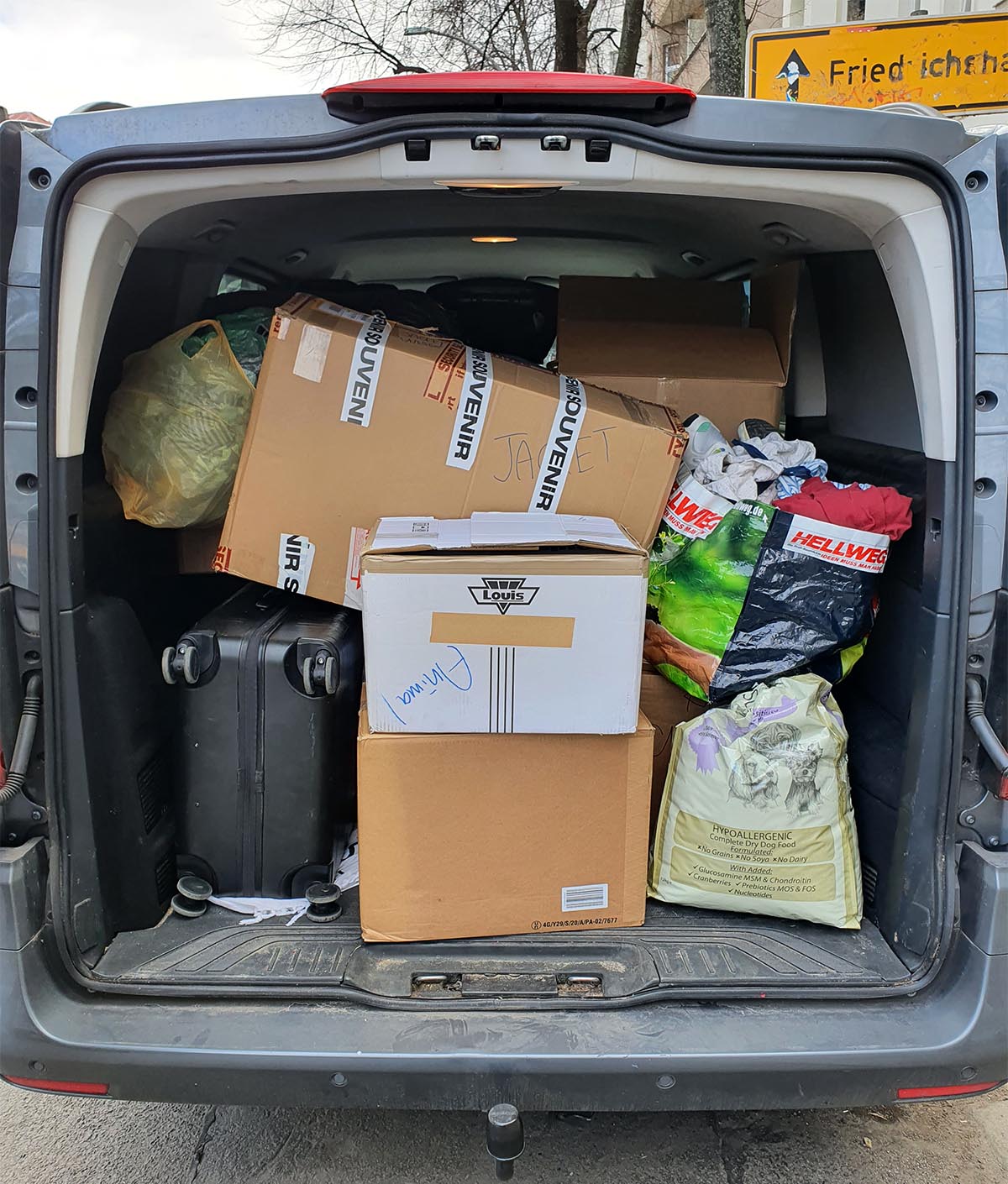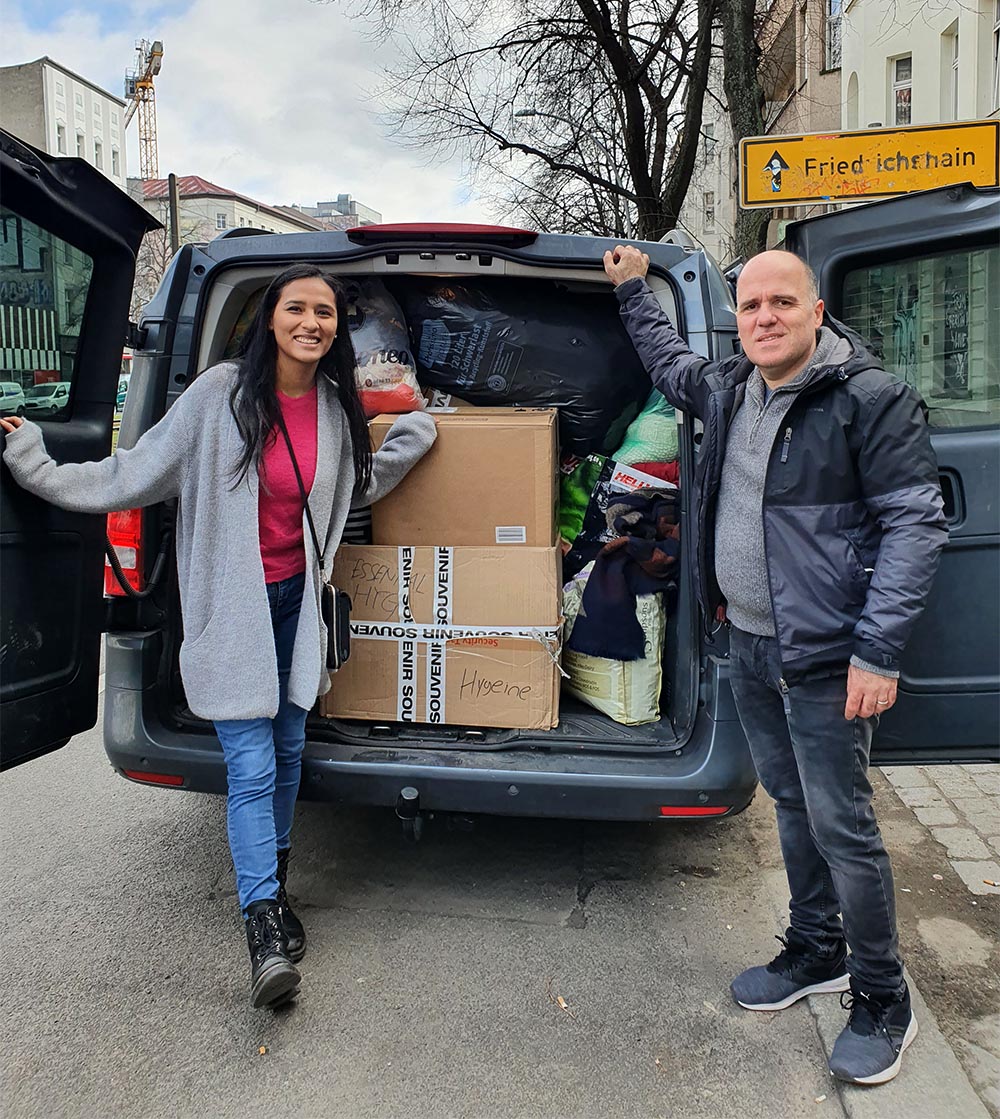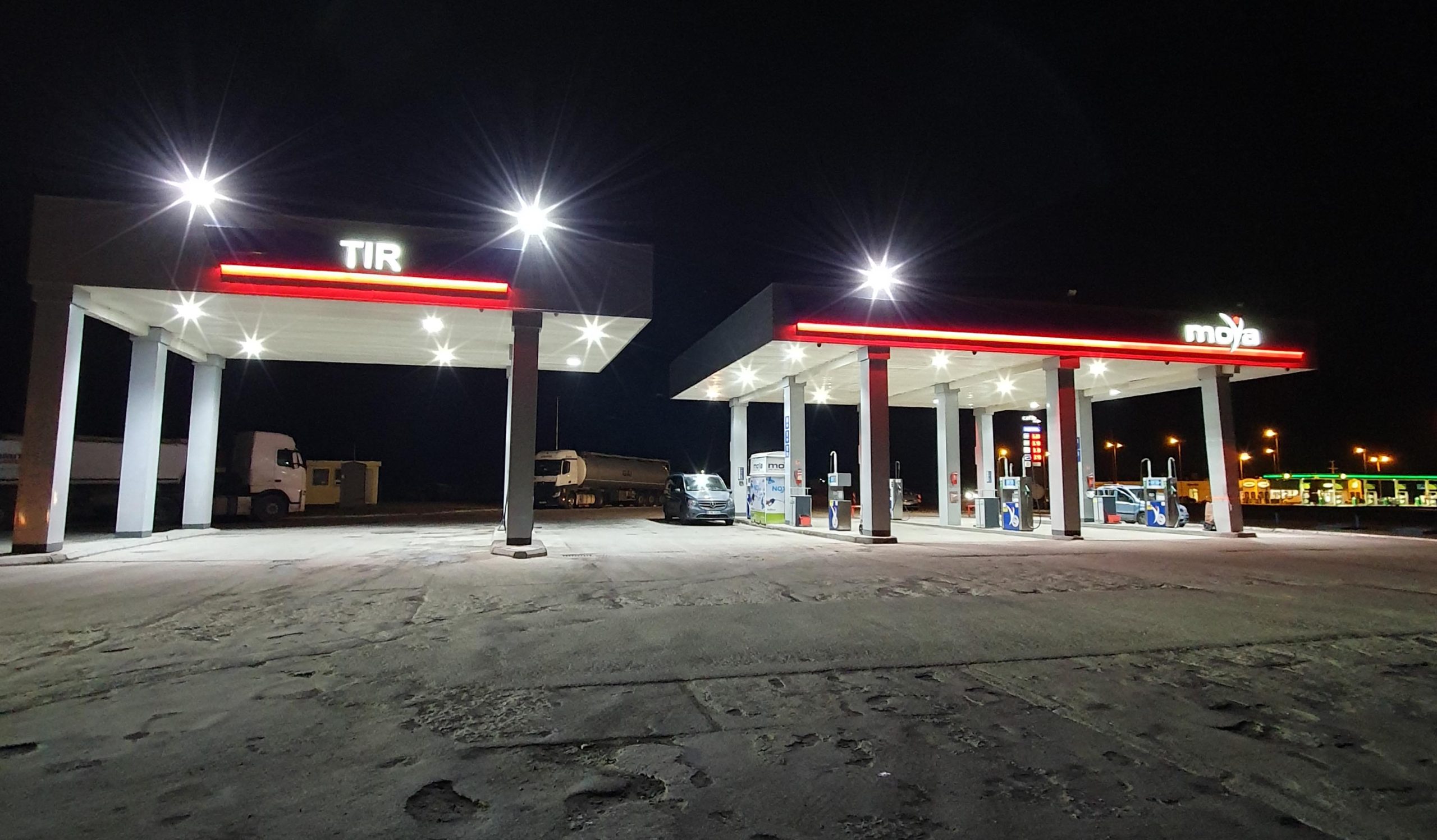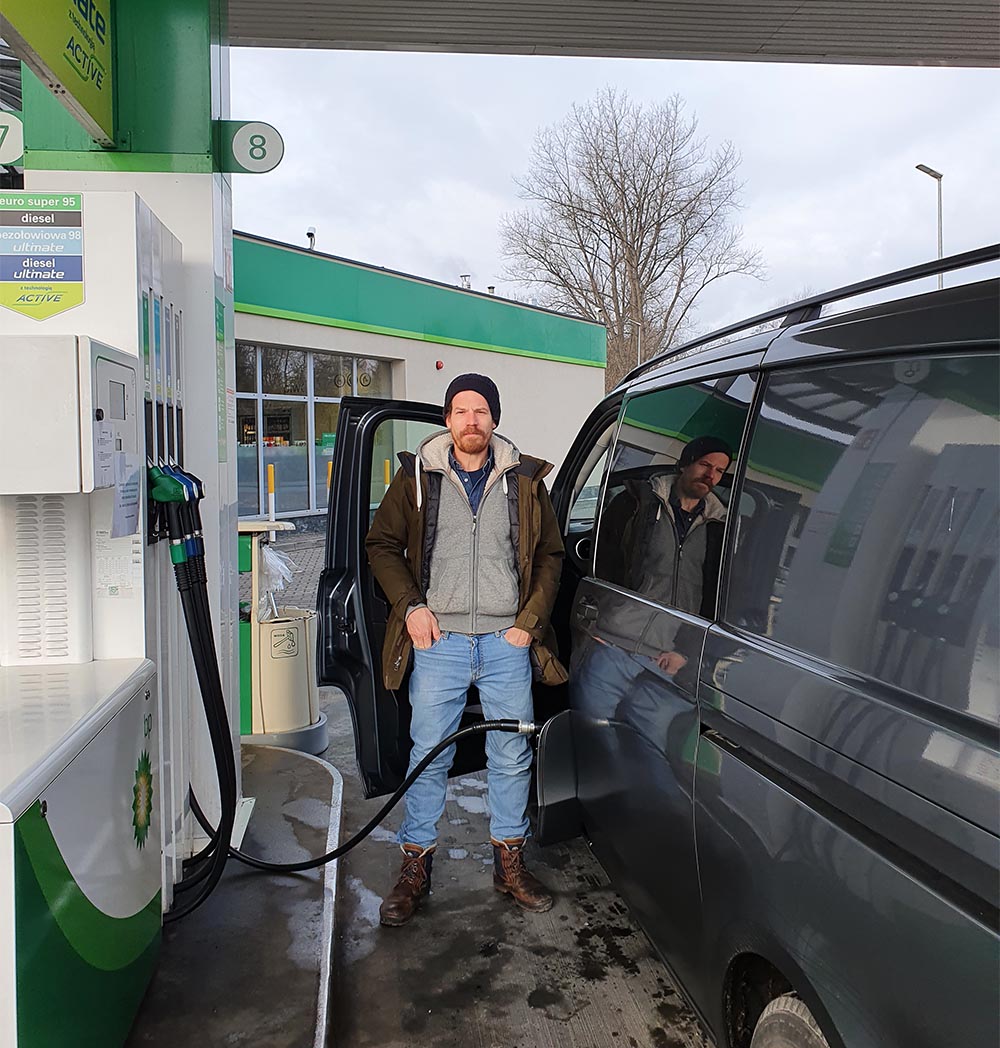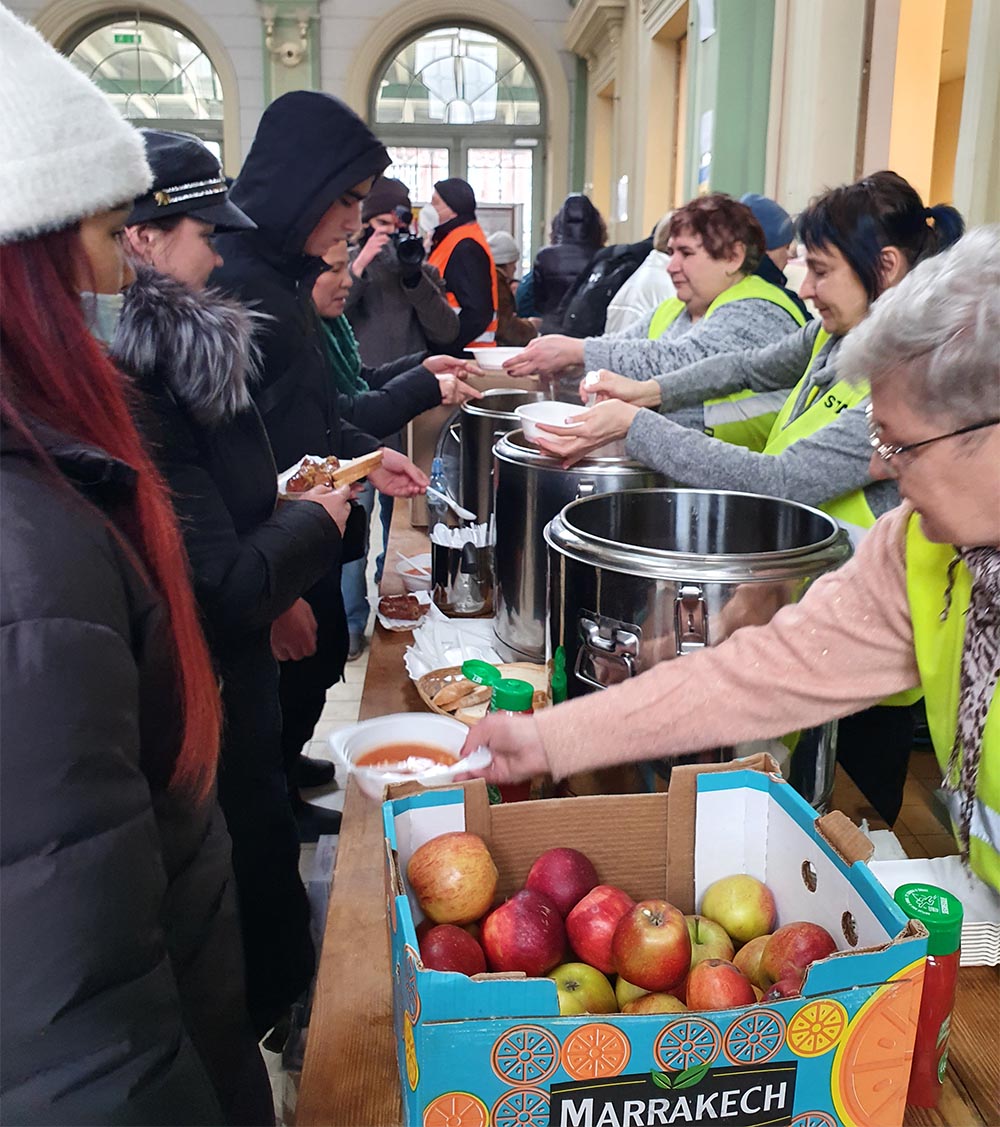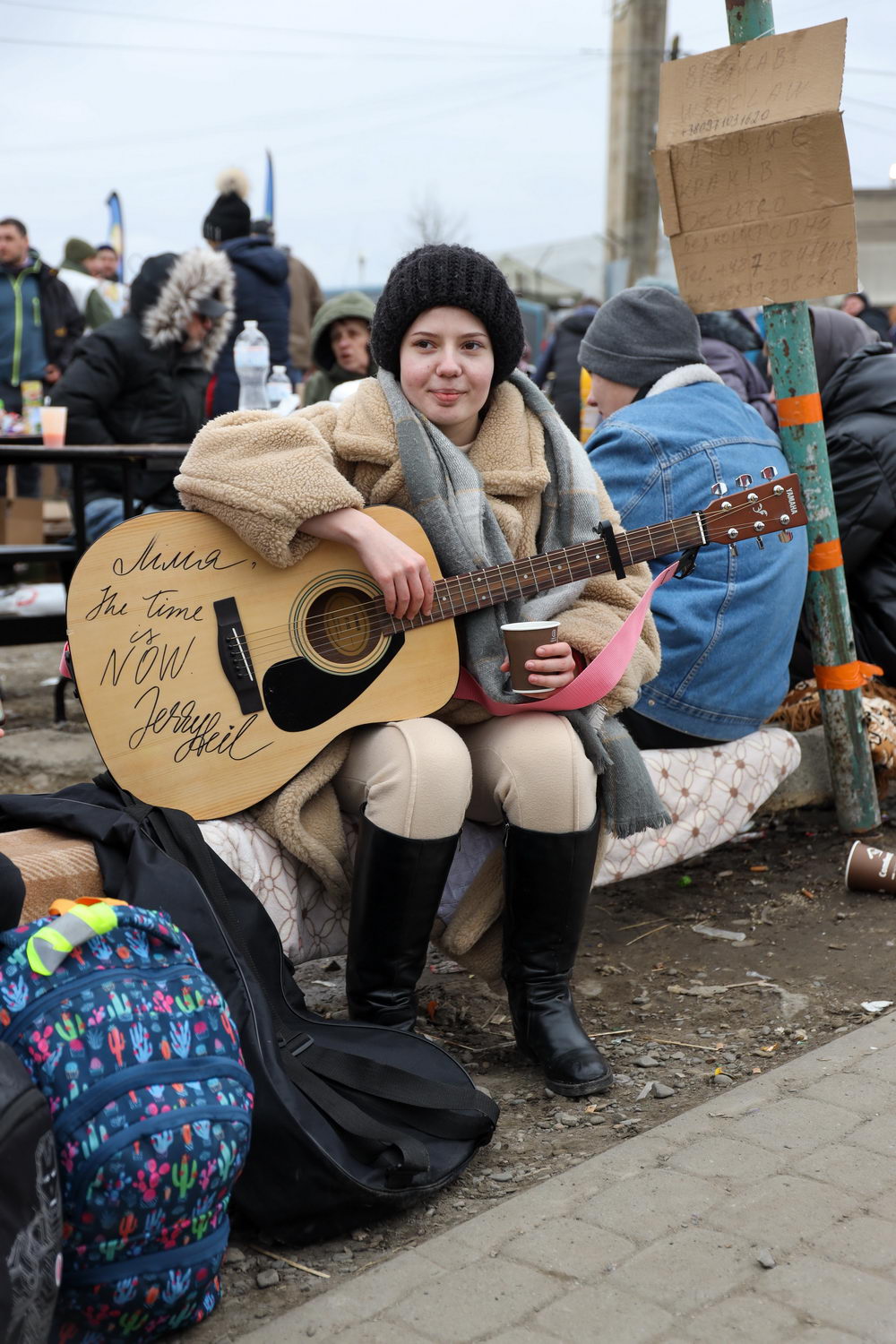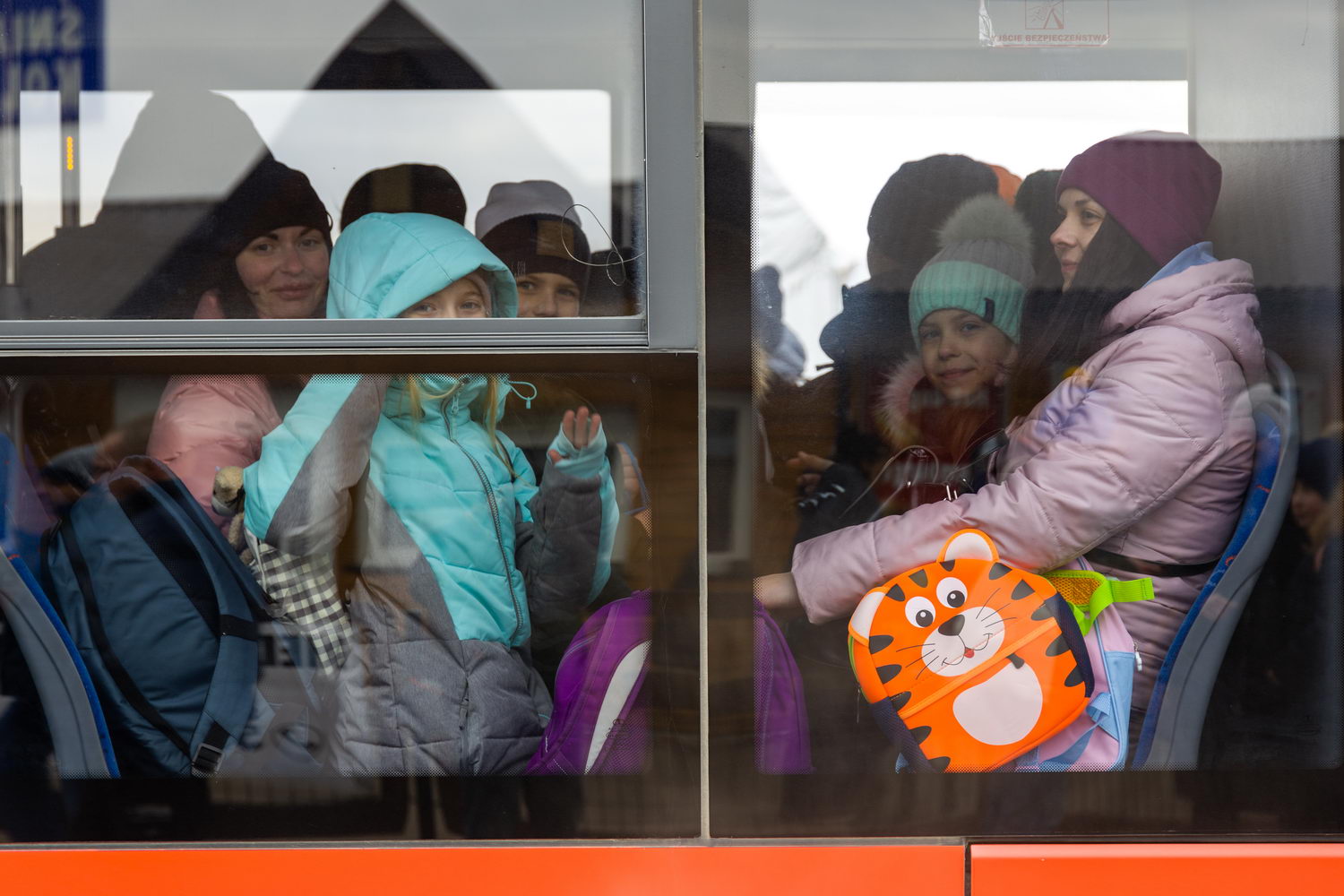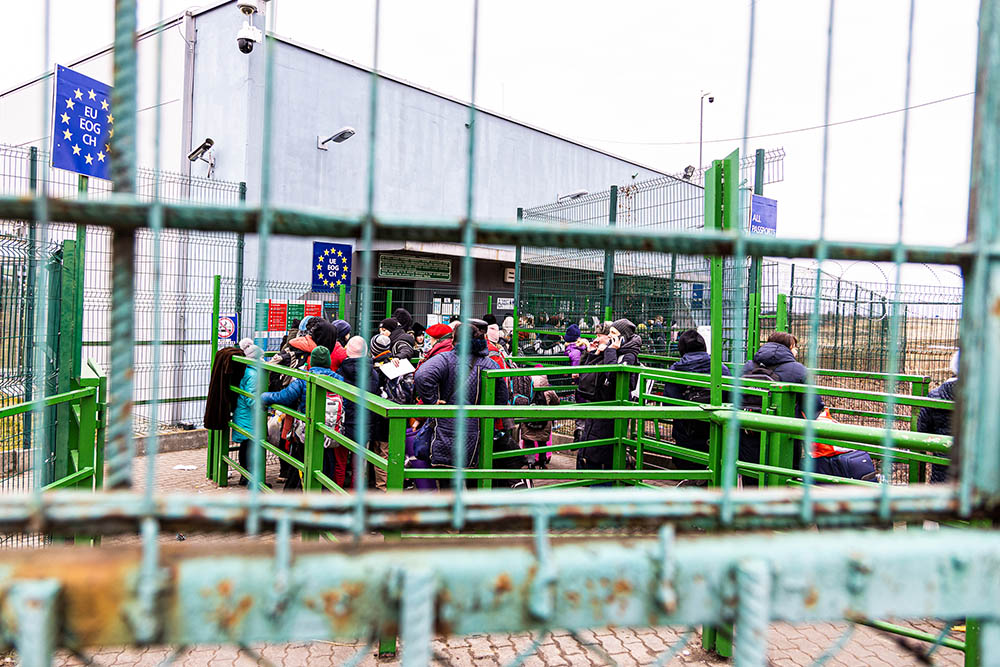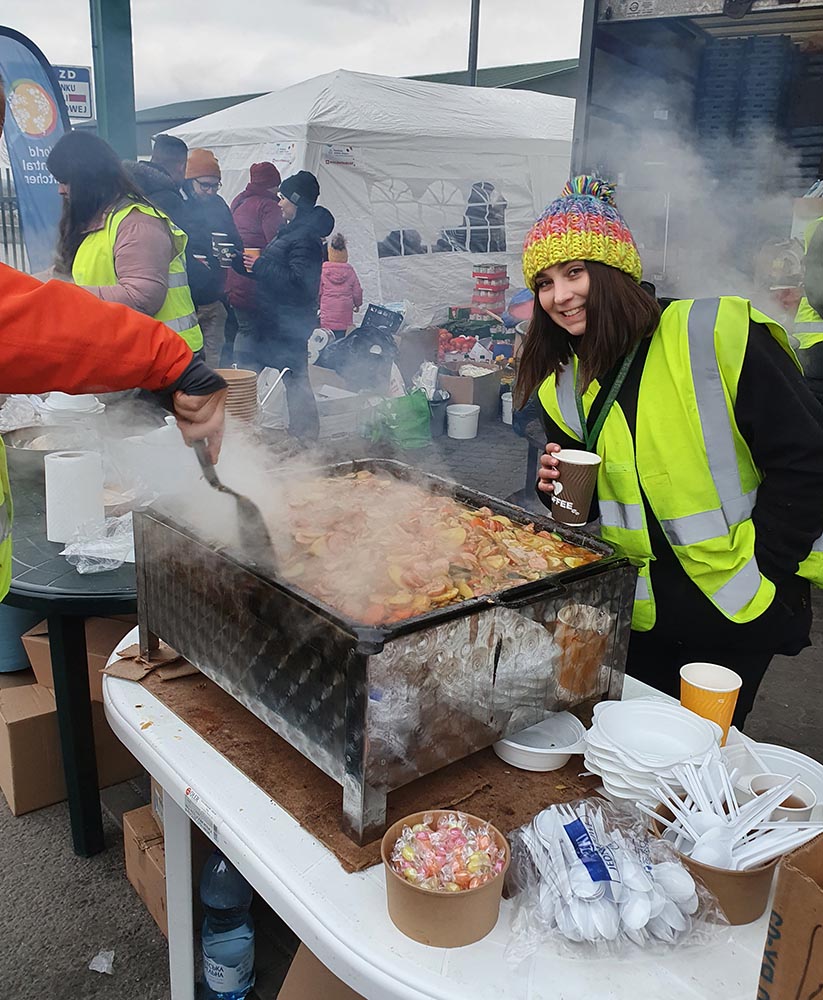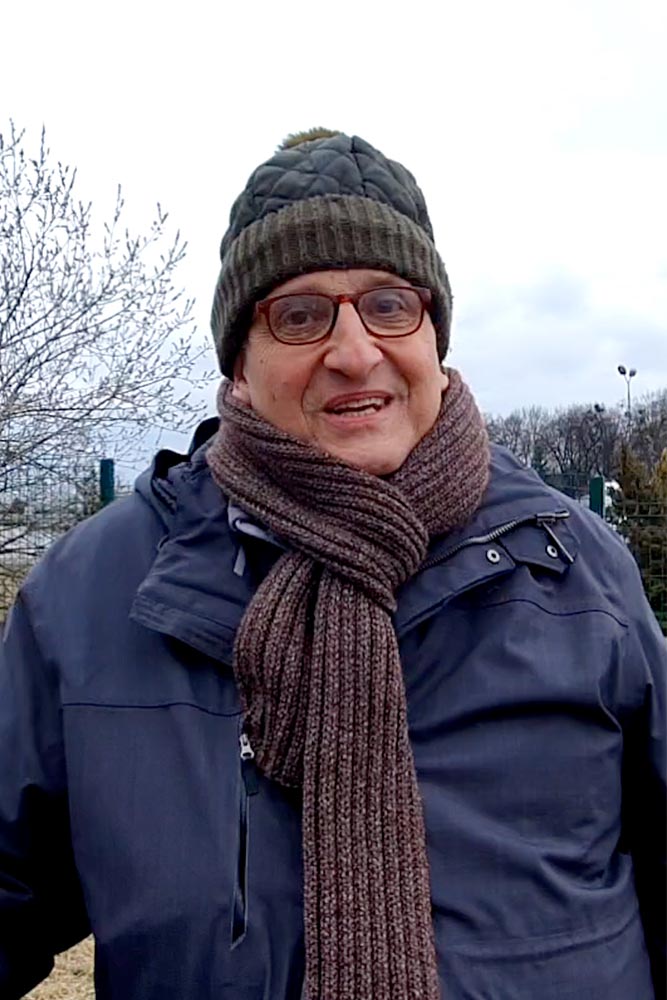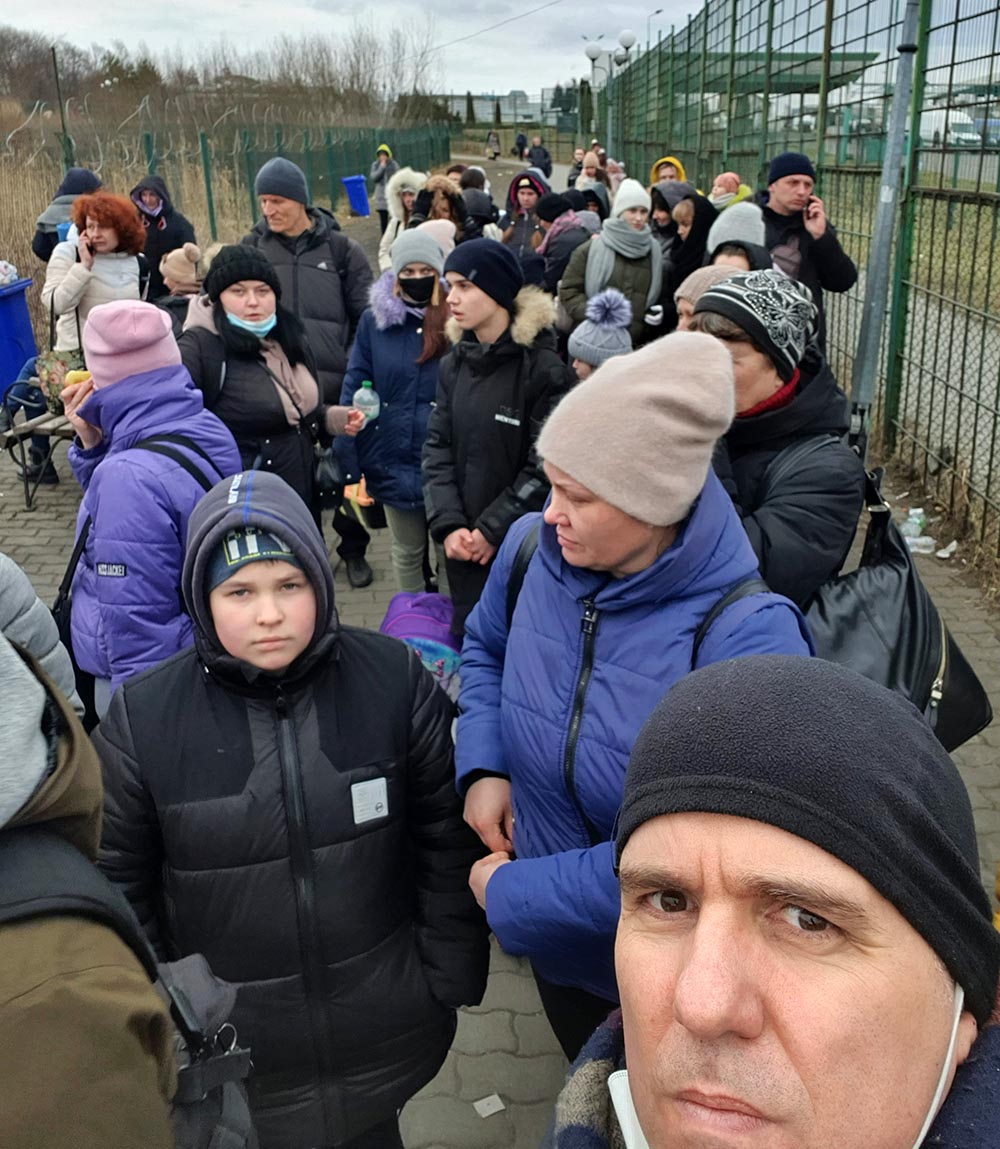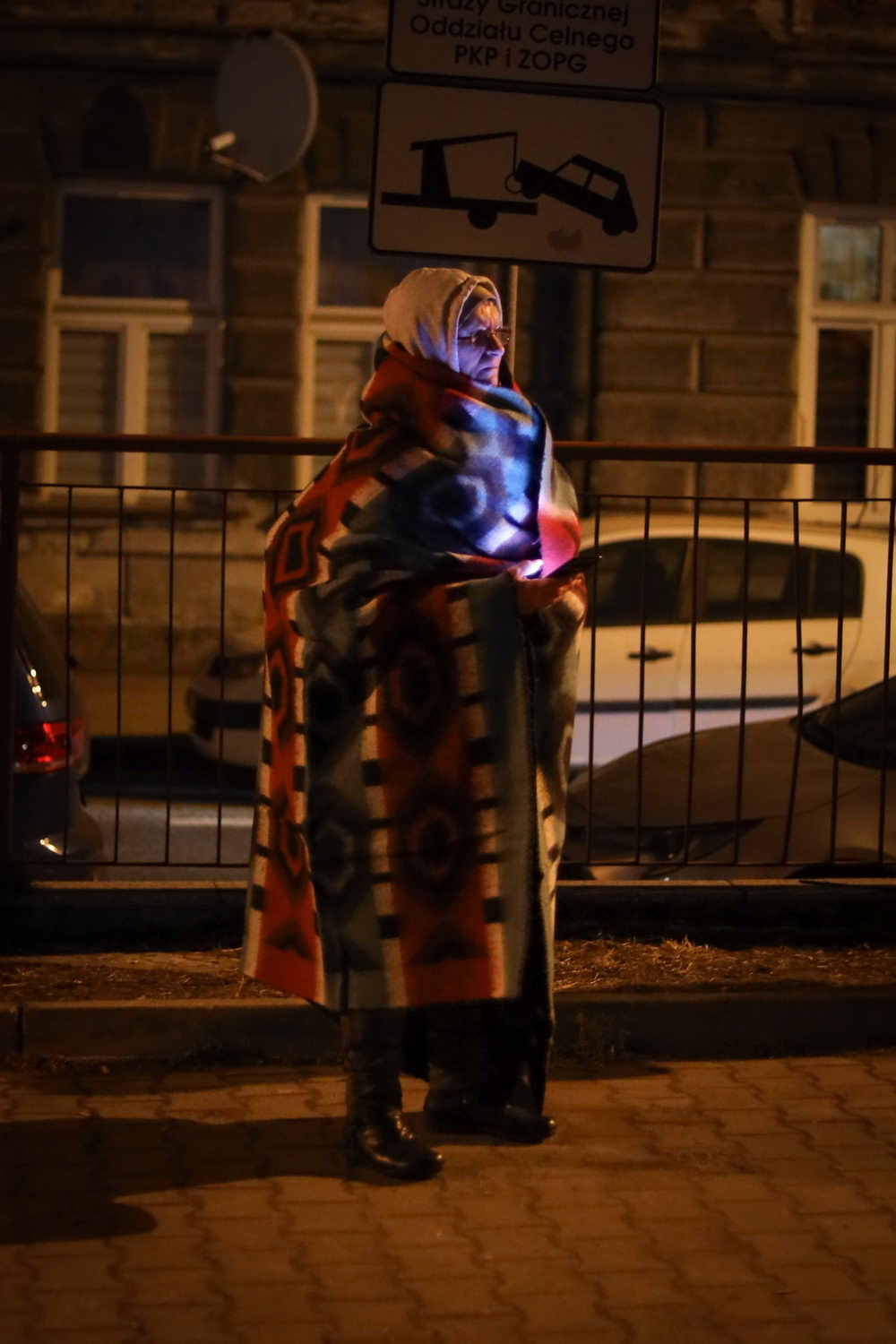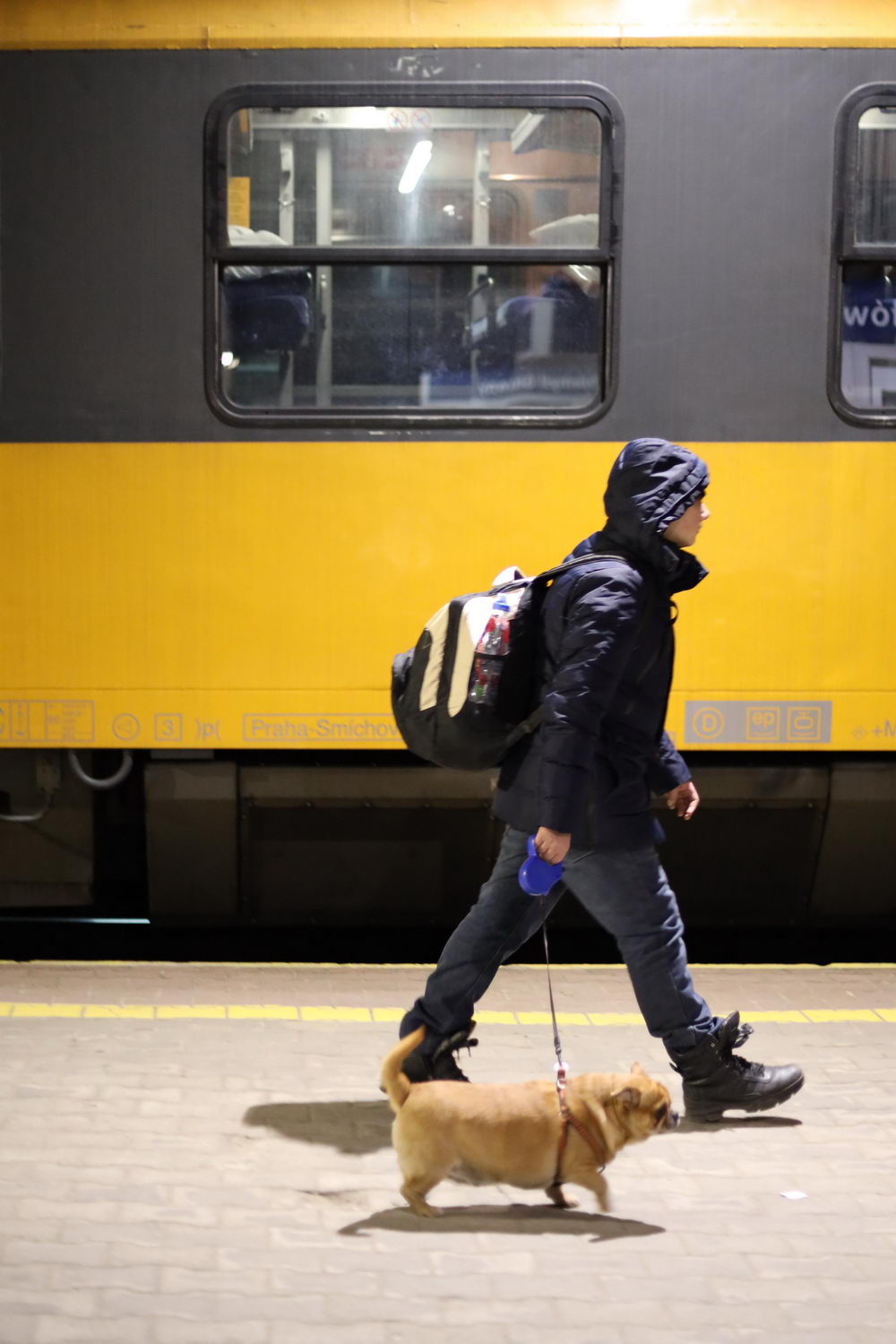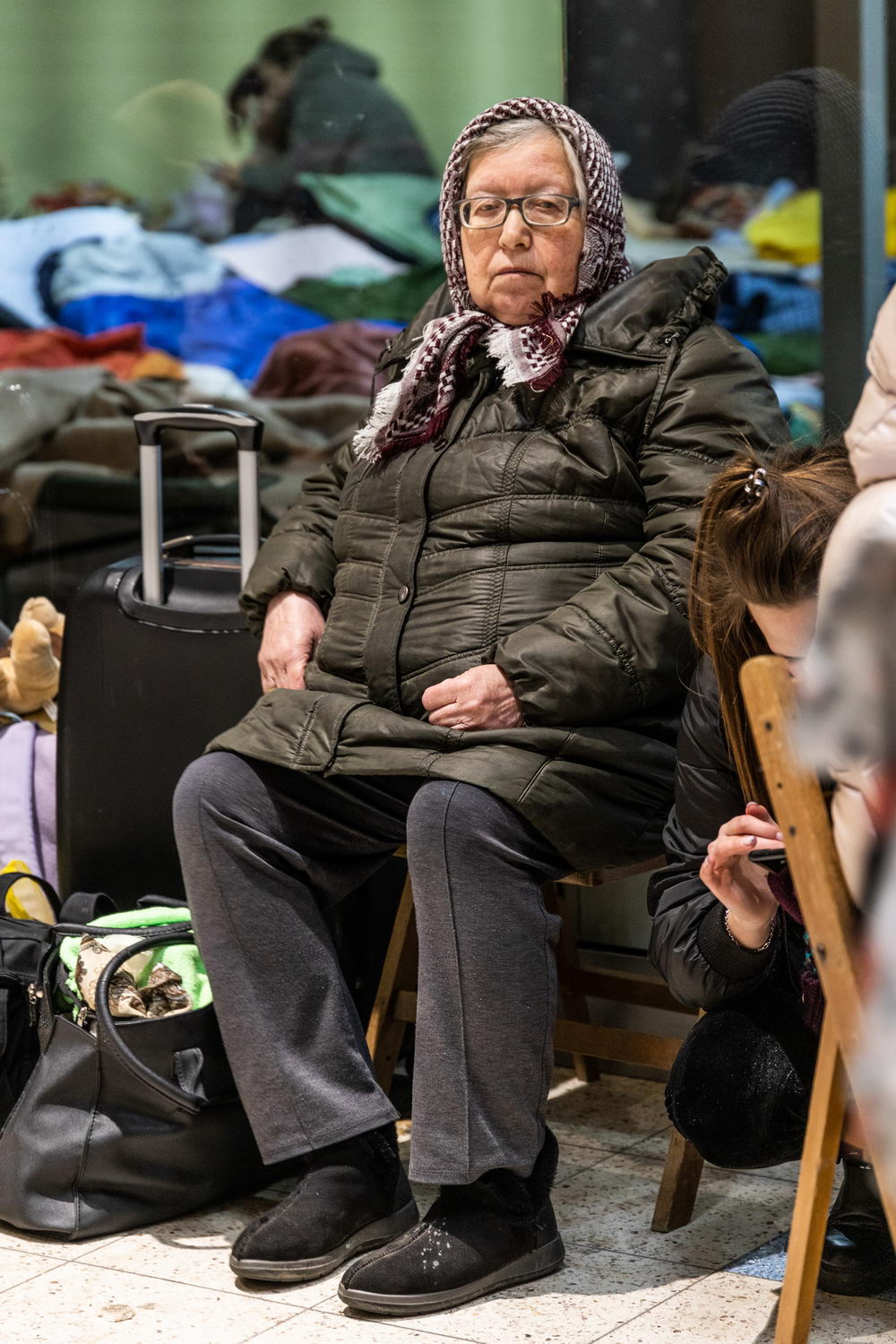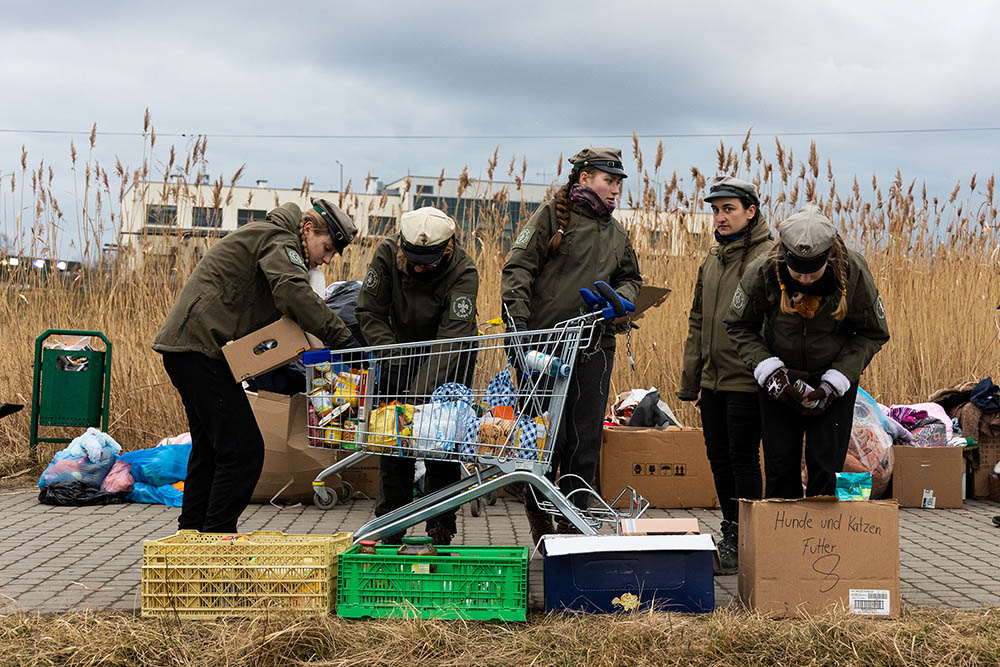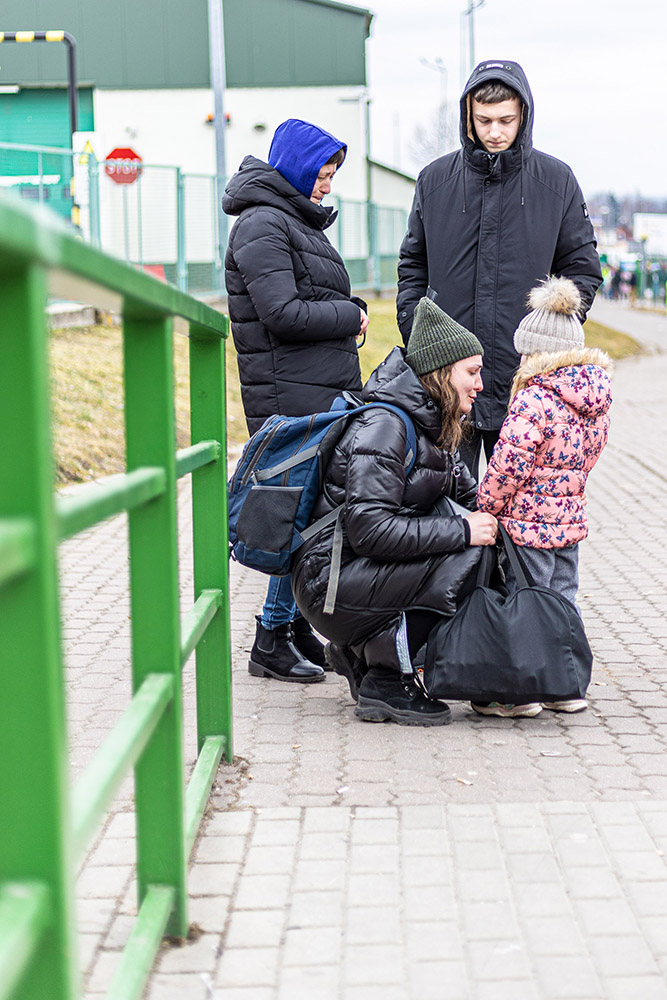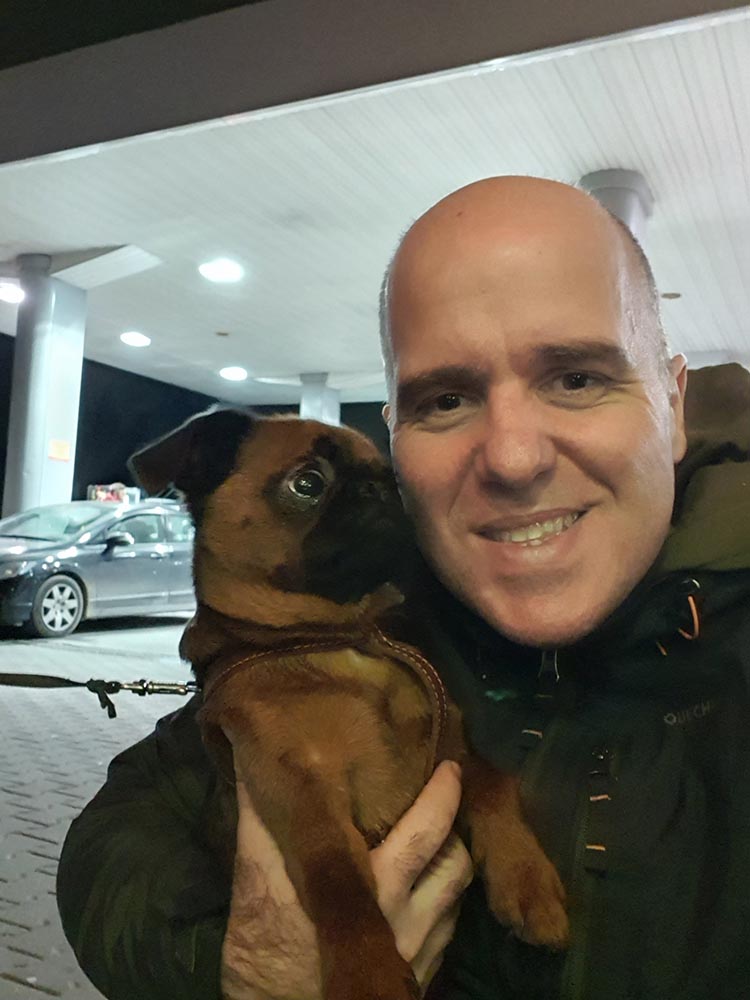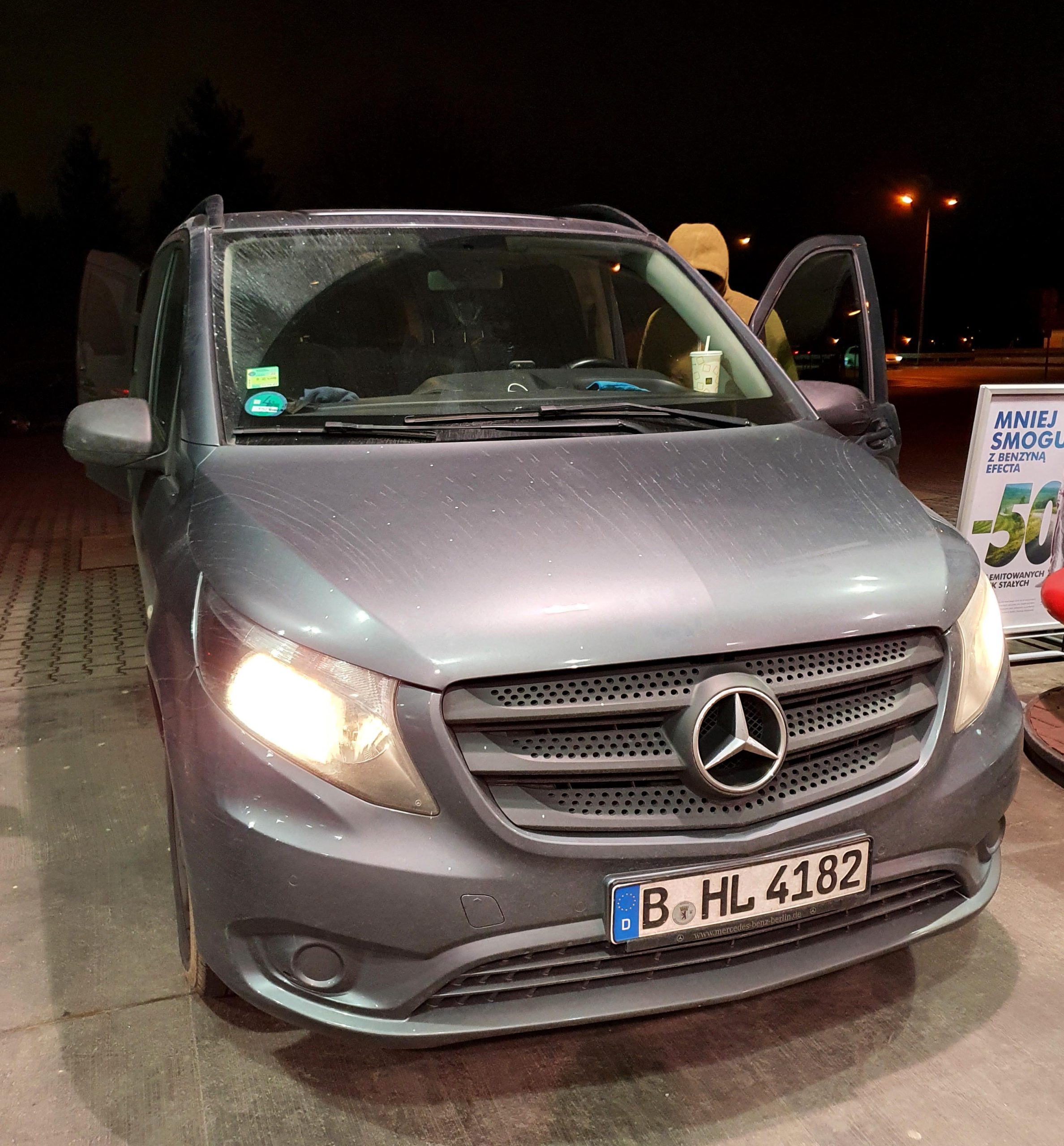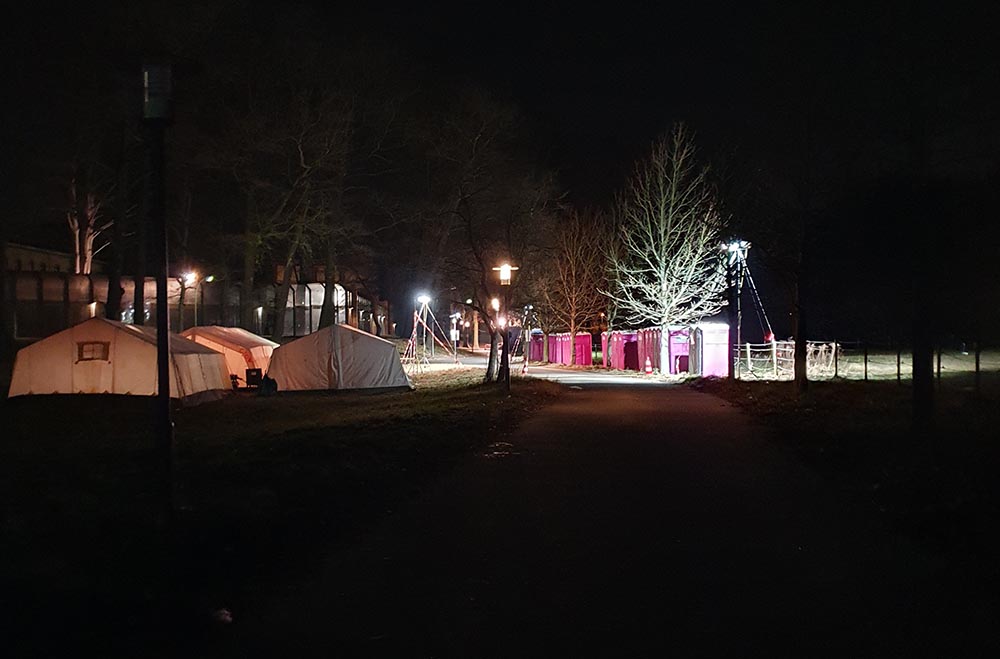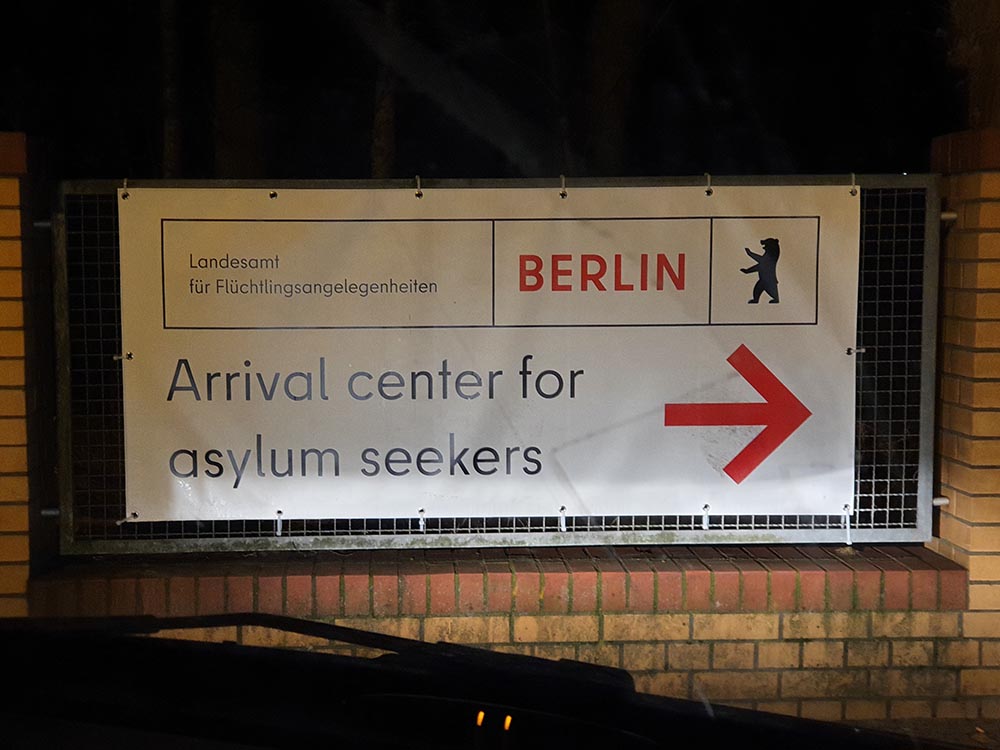Trip to the border of Ukraine and Poland
At the beginning of March we traveled with photographer Jakob Schottstädt to Poland to bring donations and make a documentary report about the situation of refugees on the Polish-Ukrainian border. Thanks to your support we were able to cover the costs of the trip and our project. With the surplus of that money we made donations to 2 Polish organizations that help refugees on the border. We also contributed to an independent project that brings pizzas to Ukrainian refugees in Poland.
This is a travel diary with a summary of what your contributions allowed us to do.
Thank you very much for all your help.
Day 1
Collection of donations
- We collected donations made by friends and added those gathered at a clothing store in Mitte. There we filled the van with warm clothes for adults, warm clothes for children, baby food, dog food, feminine hygiene items and other items needed at the border.
Beginning of the trip
- Around 17.00 hrs we left for Krakow to spend the night there and leave the next day to Pjemitz / Medyka (the Ukrainian border). Around 1.00 am we arrived at the hostel where we stayed.
Day 2
Travel from Krakow to Przemysl and Medyka (the Ukrainian border)
- We woke up early and refueled on the outskirts of Krakow because we heard on the news that the closer we got to the border, the less fuel we got.
First contact at Przemysl terminal
- The first place we visited was the terminal station in Przemysl, the largest city near the border. Trains arrived there from Kiev and other parts of Ukraine. Trains leaving from there take people to Krakow and other cities in Europe. We tried to leave the donations there but it was not possible. We talked to the volunteers who explained the desperate situation there.
Przemysl refugee center
- We took the donations to the outskirts of Przemysl, where a large refugee center is organized. The queues to leave donations were very long and there was no more room. We decided to continue to the border.
Medyka border crossing
- We arrived at the Medyka customs control on the Ukrainian border. Here the impact was very big. A camp was set up just steps away from the customs controls. Women, children and elderly people arriving in their thousands are received there. They have been queuing for hours, maybe days, to get through customs. They are given warm food, shelter, drink, medical care and are taken in buses to other refugee organization centers near Przemysl.
Crossing to Ukraine
- Thanks to our European passports and our press accreditations we were able to cross momentarily into Ukraine. The queues on the Ukrainian side seem endless. Most of them are childrens and women. At this point we met Jean-Paul Vande Reyde, he is a Belgian citizen, a retired university professor who thanks to his diplomatic passport travels to Ukraine to rescue Ukrainian families. At the time he was on his way to rescue the wife and children of a friend.
On returning to Poland we were able to enter through the customs area where cars and buses pass. There we also set up a temporary reception post for refugees where they are given food and shelter.
Delivery of donations
- Back in Przemysl we tried again to drop the donations in the different refugee centers. All of them were full. Thanks to the information of a Polish soldier we went to the gymnasium of a school that was enabled to receive donations. When we arrived a group of volunteers received us kindly and formed a human chain that unloaded everything quickly. We were able to leave everything in good hands.
The night at Przemysl station
- We decided to go back to take some pictures at the first point, it was almost midnight. The station was almost empty of journalists and media. Only families traveling from Ukraine and volunteers remained. One of the last trains was leaving for the west and the last people were running to catch it in time. Then we went back to the accommodation where we could rest a bit.
Day 3
Przemysl refugee center
- On the outskirts of the city of Przemysl is a huge refugee center. There the logistics have been organized to redistribute the people coming from the border a few kilometers away in Medyka. We decided to go early because the day before it was a chaos of vehicles and people carrying donations from Germany and other parts of Europe. The place was quite organized, there were many tents with donations in what was the parking lot of a kind of shopping mall. The main building was converted into dormitories for women, children and grandmothers.
No drone, no filming, no photos
- We tried to take some pictures in a small village near the border to illustrate our documentary material. We were intercepted by two Polish soldiers and after checking our passports we were escorted to leave the area. We were not allowed to take aerial or any other kind of pictures due to border security issues.
Back at the Medyka border
- We went to record some more pictures at the border around noon. There we waited to receive news from Jean-Paul but we didn’t get any until a few days later when we found out that he was able to accomplish his mission. Having no one to take back we decided to go to the train station in Przemysl from where we were sure to find someone who would like to take advantage of our trip.
The return trip from Przemysl to Berlin
- We made a sign that said Krakow / Berlin and stood in the hall of Przemysl station. Immediately an older woman appeared with a small puppy. Her name was Marina and her dog Tiberius. Thanks to the help of a translator she told us that she wanted to travel to Berlin to meet her family. We had two more places left and Jakob found two other middle-aged women who were friends, both named Helena. With the 4 passengers we set off for Berlin. The trip lasted about 12 hours during which we took turns driving with Jakob. We were able to communicate thanks to Google translator. We bought food and drinks for our passengers but they did not want to have dinner. Only one of the Helena’s dared to have dinner with us at a gas station near the German border. She explained that she had traveled from Dnipropetrovsk and that it had taken almost 3 days to reach the border. When we were about to continue our journey Jakob found a van carrying other refugees, the driver spoke German and Russian. This way we were able to clear all the doubts of our passengers so that they would be more at ease. In this last part of the trip they were able to sleep a little while we continued driving to Berlin.
Berlin
- We drove Marina to Schöneberg, arriving at about 3 am. Her sister has been living in Berlin for 15 years and was very distressed. She thanked us and told us that Marina is a pediatrician and that she worked a lot in Kiev when she went to visit her, so her dog stayed with her in the house and they played. Both of them were very excited and said goodbye to us. From there we went to Reinickendorf to take the other two passengers to the refugee reception center. Arriving at about 3.30 am, the police stopped us at the gate and told us that we had to enter on foot. The check-in point was almost 2 km away on foot. We had to walk with their suitcases in freezing temperatures because the rules said no civilian cars could enter the place. Then when we arrived the reception was not very friendly. They did a Covid check in the open air, I repeat, the temperatures were very cold. Jakob complained explaining all that these women had suffered and how in Poland they were received much better even though they were free volunteers who did not earn any money for doing this work. We said goodbye to both Helenas and went back home.
In the following days we communicated with them. Maryna is doing well living with her sister. The two women named Helena were traveling around Köln, trying to find a place to settle down while the war is still going on.
Donation money
- A few days later we received news from Jean-Paul, he managed to get his friend’s family out. The 2 children and their mother are in Munich living with a German family.
Jean-Paul has a project called “Pizza for refugees”, we donated part of the money left over to Jean-Paul’s project. The rest we donate to two institutions. One is Centrum Pomocy Prawnej im. H. Nieć, which is in charge of legal counseling for refugees and unprotected people. The other is Fundacja Ocalenie, this organization works with refugees and is rescuing people from the border who are not Ukrainian citizens and who are not treated fairly.
The balance of expenses
- The total raised was 1722 € through Paypal and 150 € in cash, the total was 1872 €. We spent 65,33 € on food, 155 € on equipment rental (we rented an additional camera and several lenses), 61 € on accommodation (1 night in Krakow and 1 night in Przemysl), 25 € on Tolls and transport, 548,4 € on fuel and 19 € on additional expenses. 400 was donated to Centrum Pomocy Prawnej im. H. Nieć, 400 € to Fundacja Ocalenie and 150 € to “Pizza for refugees”. We have €50 left that we are saving for future stages of the project.
We would like to thank all donors for their contributions and remain at your disposal for any questions or queries.
Language:

Jakob Schottstädt


